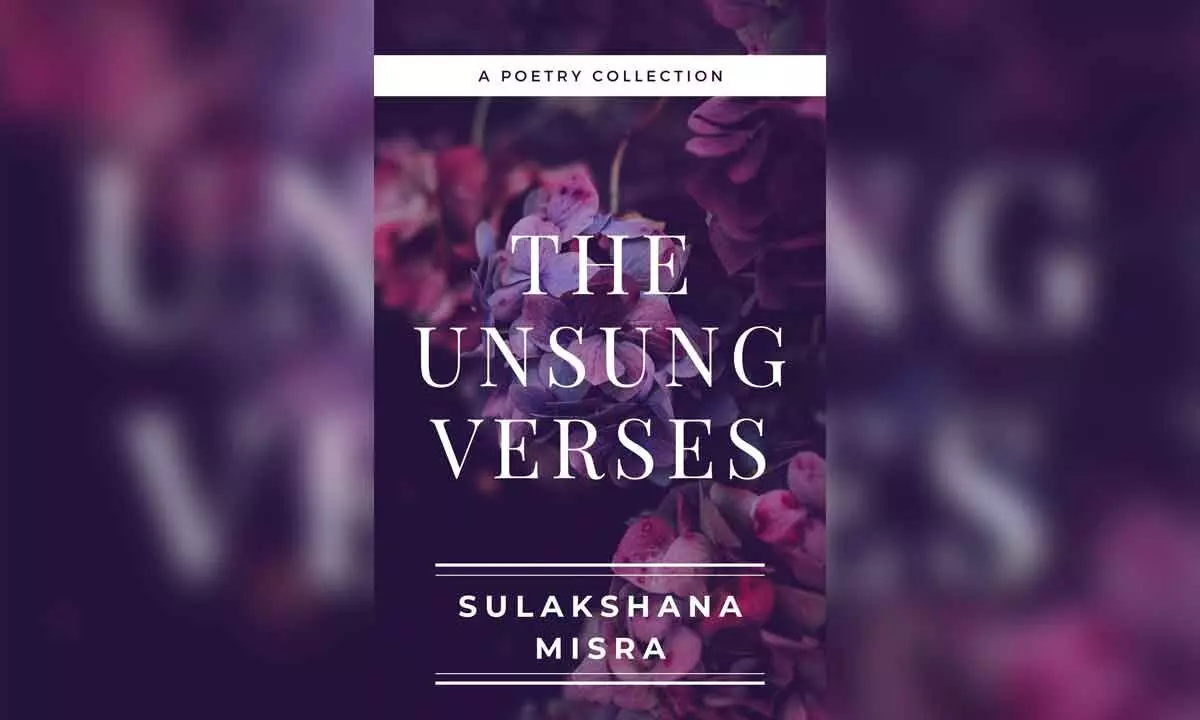A medley of myriad emotions

If we concur with William Wordsworth who articulates in his ‘Preface to the Lyrical Ballads’ that poetry is a spontaneous overflow of powerful emotions recollected in peace and tranquility
If we concur with William Wordsworth who articulates in his 'Preface to the Lyrical Ballads' that poetry is a spontaneous overflow of powerful emotions recollected in peace and tranquility, we will also fully see eye to eye with the doyen of Romantic Poetry in the context of Sulakshana Misra's latest anthology "The Unsung Verses" which is quite an emotive collection of fifty one heart touching poems. Savouring the varied flavours of her poetic pieces, it can be aptly remarked in Keatsian way that poetry comes to her as leaves come to a tree. It appears that her deeply profound lines flow through the fathomless recesses of her heart in a manner so spontaneous and smooth as if some sounding cataract is gushing down from the mountains above.
The poet has a firm belief in the philosophy of fatalism and the inexorable theory of karma. In her poem titled as 'Karma' the poet asserts the fact with copious conviction that no one can escape the inevitable divine laws. Giving full credence to the oft-quoted dictum that as we sow so shall we reap, the poet articulates that "For someone, if you dig a ditch rest assured, someday the karma will play the witch". Well versed with the art of literary stylistics, the poet employs the literary device of enjambment here and there. Enjambment is the continuation of a sentence or clause across a line break. John Donne uses enjambment in his poem "The Good-Morrow" when he continues the opening sentence across the line break between the first and second lines: "I wonder, by my troth, what thou and I / Did, till we loved? Were we not weaned till then?"
In her another poetic piece 'Age is Just a Number', the poet sheds light on another irrefutable reality of human life that the sickle of old age spares none. Understanding the fact that the light quill of time writes heavy wrinkles on every beautiful face. Initially the speaker in the said poem is quite ill at ease when she finds that age is catching up with her but suddenly there is shift in the mood as she painfully reconciles with this dreaded reality and says, "Ageing is just a process that cannot be avoided."
Imagery is doubtlessly the soul of literature and in the genre of poetry, it becomes all the more significant. Fully conversant with the skill of using the device of imagery, the poet paints in words rather than colours. While reading her literary outpourings, we can see an old decrepit and debilitated lady wobbling on her rickety knees with a stick in her doddering hands. Misra can be pertinently applauded for the element of pictorial beauty which embellishes and festoons every stanza of her poems. Therefore, it can be fain remarked that as a young poet Misra has a knack and dexterity for juggling with words and images with utmost sublimity. She has artistically and aesthetically dealt with the myriad aspects of human's emotions and thus successfully manages to carve her niche among the poets with a heightened sense of subtle sensibilities.
In a nutshell, Sulakshana Misra's poems are well- woven and have a compact structure which is indeed class-apart. As David Crystal says, "Language is for the ears and not for the eyes". Similarly, Misra's language has a melody of its own. Laced with the literary devices of metaphors, similes enjambment and rich imagery, it is musical to the innermost ears of the readers. Pathos and poignancy are the hallmarks of her poetic style and make her stand shoulder to shoulder with the poets of exceptional charisma and international acclaim.
















